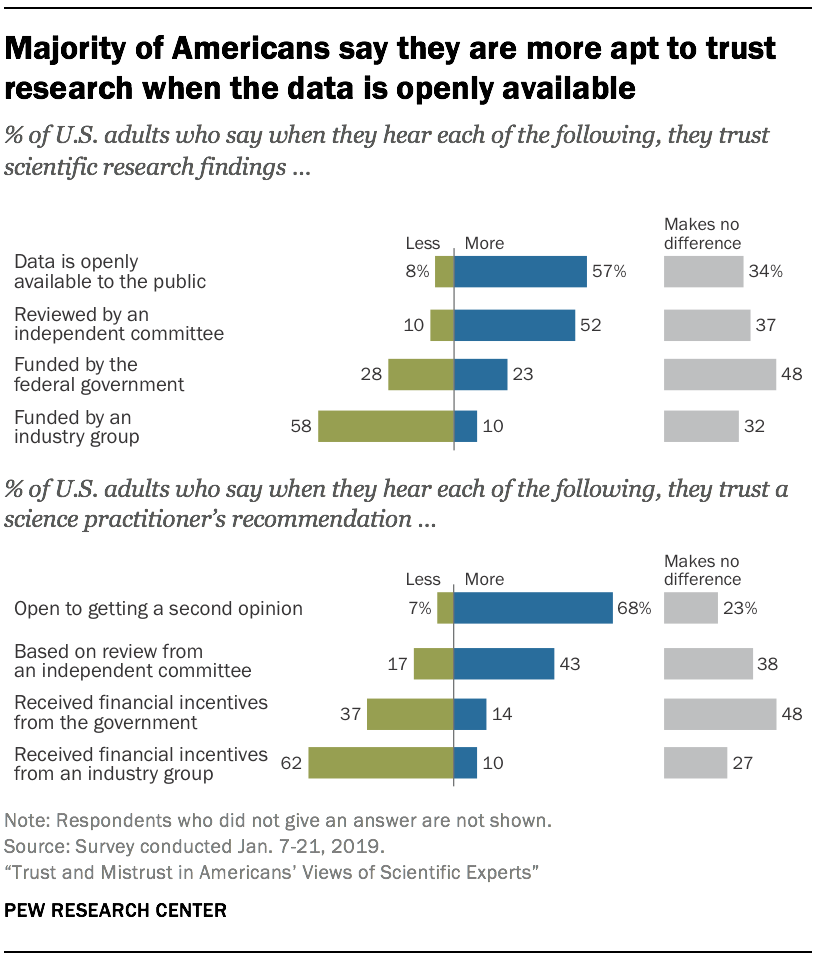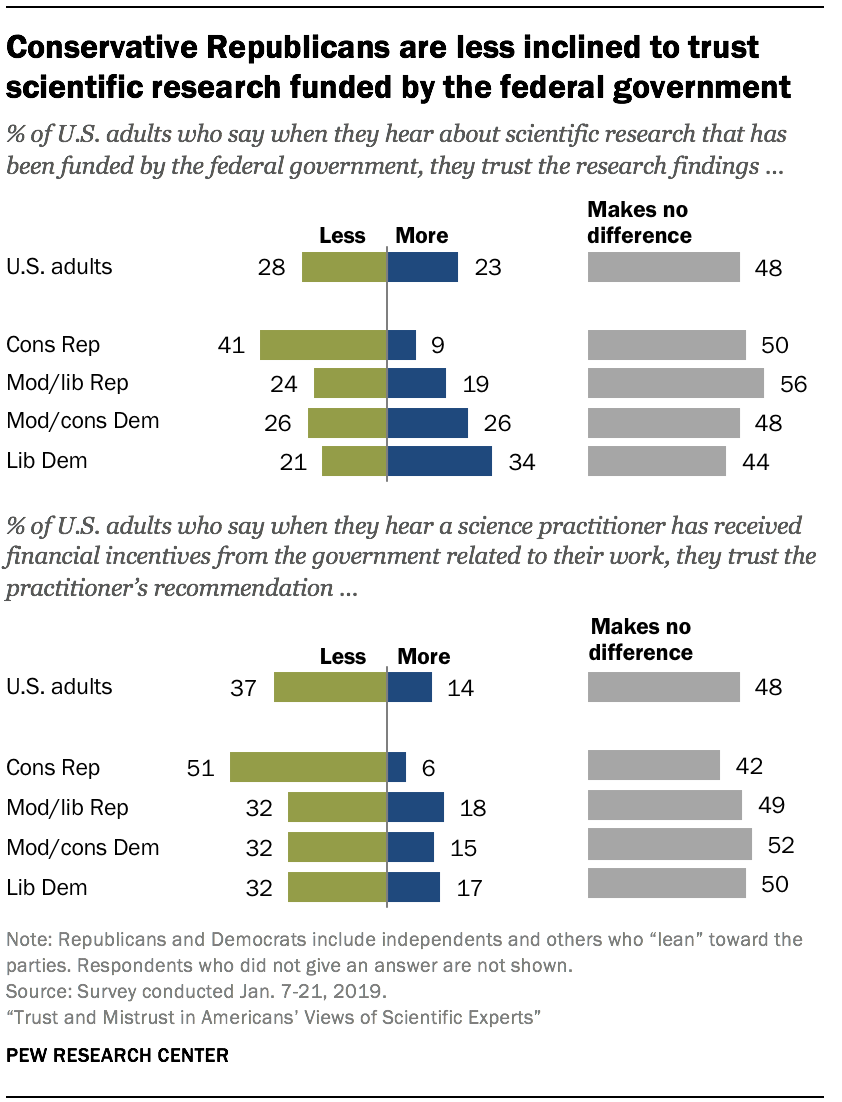The Pew Research Center survey asked about several factors that could potentially increase – or decrease – trust in research findings and recommendations. The two steps that inspire the most confidence among members of the public are open access to data and an independent review.

A majority of U.S. adults (57%) say they trust scientific research findings more if the researchers make their data publicly available. Another 34% say that makes no difference, and just 8% say they are less apt to trust research findings if the data is released publicly.
About half the public (52%) say they trust scientific findings more if the findings have been reviewed by an independent committee.
Industry funding stands out as a factor Americans say leads to lower trust. A majority of Americans (58%) say they trust scientific findings less if they know the research was funded by industry groups.
The effect of government-funded research is less clear. About half of U.S. adults (48%) say learning that a study has been funded by the federal government has no impact on whether they trust its findings. The remainder is closely divided between those who say government funding decreases their trust (28%) and those who say it increases their trust (23%).
Similar factors inspire public trust in practitioners. About two-thirds of the public (68%) say they are more likely to trust practitioners’ recommendations more if that practitioner is open to getting a second opinion. About one-quarter (23%) say a practitioner’s willingness to get a second opinion makes no difference, and just 7% say it decreases their trust.
About the survey
Survey respondents answered a series of questions about either practitioners (medical doctors, dietitians and environmental health specialists) or researchers (medical research scientists, nutrition research scientists and environmental research scientists). See the Topline for question wording.
Findings at a glance for each group:
– Nutrition research scientists
In addition, 43% of Americans say they trust practitioner recommendations more if they have been reviewed by an independent committee. And a majority (62%) say they have less trust in recommendations from practitioners who receive financial incentives from industry groups.
The effect of government-based financial incentives for practitioners on public trust is less clear. Some 37% of Americans say they have less trust in recommendations from a practitioner who has received financial incentives from the federal government, while 14% say this increases their trust in such recommendations. Another 48% say government funding has no effect.
People with higher levels of science knowledge are especially likely to say that open access to data and an independent review boost their confidence in research findings. For example, 69% of those with high science knowledge say that having data publicly available makes them trust research findings, versus 40% of those with low science knowledge.
Those high in science knowledge are especially wary of industry financing for research. Eight-in-ten (80%) say knowing that research has been funded by an industry group reduces their trust in the findings, compared with 55% of those with medium knowledge and 30% of people with low science knowledge.

Opinions about government-funded research differ by politics. Among conservative Republicans, just 9% say that government funding increases their trust in research findings, while 41% say it decreases their trust. In contrast, liberal Democrats are more inclined to say government funding increases (34%) rather than decreases (21%) their trust in scientific research.
These findings are in keeping with political divides over support for federal spending on scientific research and an array of other government policy and spending priorities.




